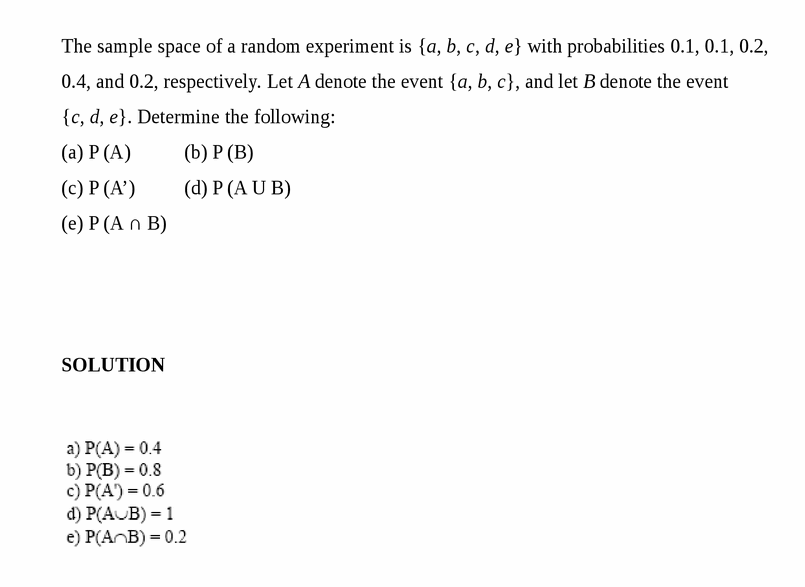
The sample space of a random experiment is {a, b, c, d, e} with probabilities 0.1, 0.1, 0.2, 0.4, and 0.2, respectively. Let A denote the event {a, b, c}, and let B denote the event
{c, d, e}. Determine the following:
(a) P (A) (b) P (B)
(c) P (A’) (d) P (A U B)
(e) P (A ∩ B) |
| New search. (Also 1294 free access solutions) |